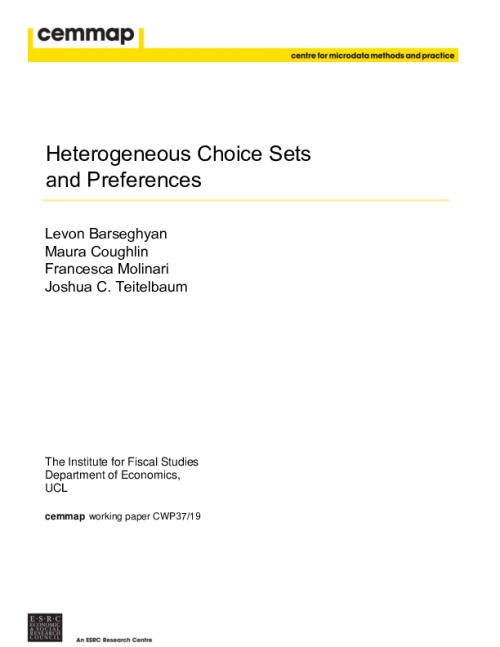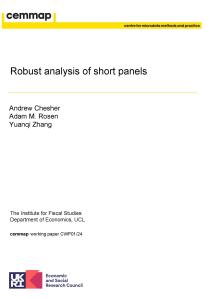We propose a robust method of discrete choice analysis when agents’ choice sets are unobserved. Our core model assumes nothing about agents’ choice sets apart from their minimum size. Importantly, it leaves unrestricted the dependence, conditional on observables, between agents’ choice sets and their preferences. We first establish that the model is partially identified and characterize its sharp identification region. We also show how the model can be used to assess the welfare cost of limited choice sets. We then apply our theoretical findings to learn about households’ risk preferences and choice sets from data on their deductible choices in auto collision insurance. We find that the data can be explained by expected utility theory with relatively low levels of risk aversion and heterogeneous choice sets. We also find that a mixed logit model, as well as some familiar models of choice set formation, are rejected in our data.









